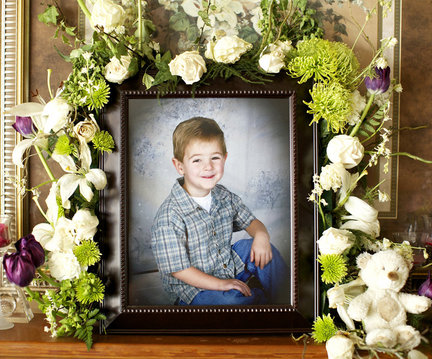I’m going to the doctor’s for my annual check-up on Tuesday. I know I don’t exercise enough anymore, so I have high blood pressure; I’m old; I’m tired; having babies at 47 doesn’t keep one young, it keeps one old and tired. I’ve got other issues, like some form of motion sickness that makes me barf, but we won’t get into that. And I’m not sure there’s much the doctor can tell me. My problems are trivial.
 The Oregonian reports that Bonnie Wilson took her sick 4-year-old, Ronan (right) , to the pediatrician on Monday, March 29. She says she told the doctor that another child in Ronan’s day care had been hospitalized with the potentially deadly bacteria E. coli O157:H7. But Ronan’s symptoms didn’t fit that diagnosis.
The Oregonian reports that Bonnie Wilson took her sick 4-year-old, Ronan (right) , to the pediatrician on Monday, March 29. She says she told the doctor that another child in Ronan’s day care had been hospitalized with the potentially deadly bacteria E. coli O157:H7. But Ronan’s symptoms didn’t fit that diagnosis.
The doctor suspected the sandy-haired, hazel-eyed boy had the flu and sent Wilson home with instructions to keep a close eye on him.
Guess Bonnie was supposed to use those magic goggles that let her see bacteria.
Ronan improved briefly, but that Thursday he was back at Evergreen Pediatric Clinic in Vancouver, dehydrated, constipated and so weak he needed help sitting up. The clinic sent him to Southwest Washington Medical Center for tests, and just as he arrived, his symptoms took a horrifying turn — one that, in the end, changed the lives of everyone who knew Ronan Allen "Ro-Ro" Wilson.
On Saturday, a week after their boy’s funeral, Bonnie and Anthony Wilson told their story. They want others to know the loving, curious, ambitious child they lost and to learn from their experience. They don’t want another family to ever endure what they did.
The story goes on to say that a thousand questions remain, including: How did the E. coli outbreak start? Should doctors and public-health officials have done anything differently when children became ill? Will they do anything differently in the future? …
The Wilsons hope that sharing their story will raise awareness about E. coli. They hope doctors and public-health officials will always act swiftly to inform the public about outbreaks. And they wonder whether Ronan might be alive if he’d been diagnosed sooner.
